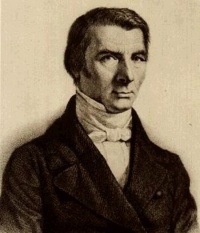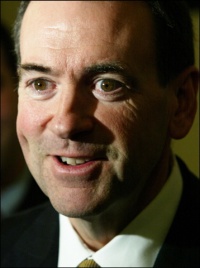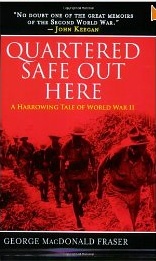 65 years ago today, the world changed. In his magnificent World War II memoir Quartered Safe Out Here, George McDonald Fraser looks back on what might have been:
65 years ago today, the world changed. In his magnificent World War II memoir Quartered Safe Out Here, George McDonald Fraser looks back on what might have been:
I led Nine Section for a time; leading or not, I was part of it. They were my mates, and to them I was bound by ties of duty, loyalty and honor… Could I say, yes, Grandarse or Nick or Forster were expendable, and should have died rather than the victims of Hiroshima? No, never. And the same goes for every Indian, American, Australian, African, Chinese and other soldier whose life was on the line in August, 1945. So [I’d have said]: drop the bomb.
…
And then I have another thought.
You see, I have a feeling that if—and I know it’s an impossible if—but if, on that sunny August morning, Nine Section had known all that we know now of Hiroshima and Nagasaki, and could have been shown the effect of that bombing, and if some voice from on high had said: “There — that can end the war for you, if you want. But it doesn’t have to happen, the alternative is that the war, as you’ve known it, goes on to a normal victorious conclusion, which may take some time, and if the past is anything to go by, some of you won’t reach the end of the road. Anyway, Malaya’s down that way … it’s up to you”, I think I know what would have happened. They would have cried “Aw, fook that!”, with one voice, and then they would have sat about, snarling, and lapsed into silence, and then someone would have said heavily, “Aye, weel” and got to his feet, and been asked “W’eer th’ ‘ell you gan, then?”, and given no reply, and at last, the rest would have got up, too, gathering their gear with moaning and foul language and ill-tempered harking back to the long dirty bloody miles from the Imphal boxes to the Sittang Bend and the iniquity of having to do it again, slinging their rifles and bickering about who was to go on point, and “Ah’s aboot ‘ed it, me!” and “You, ye bugger, ye’re knackered afower ye start, you!”, and “We’ll a’ git killed!”, and then they would have been moving south. Because that is the kind of men they were.
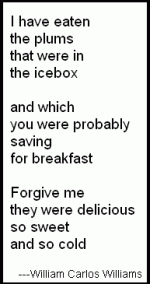
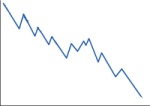

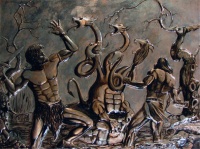
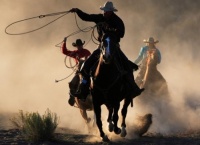
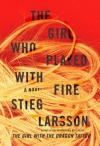

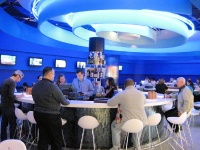


 If there is a God,
If there is a God, 